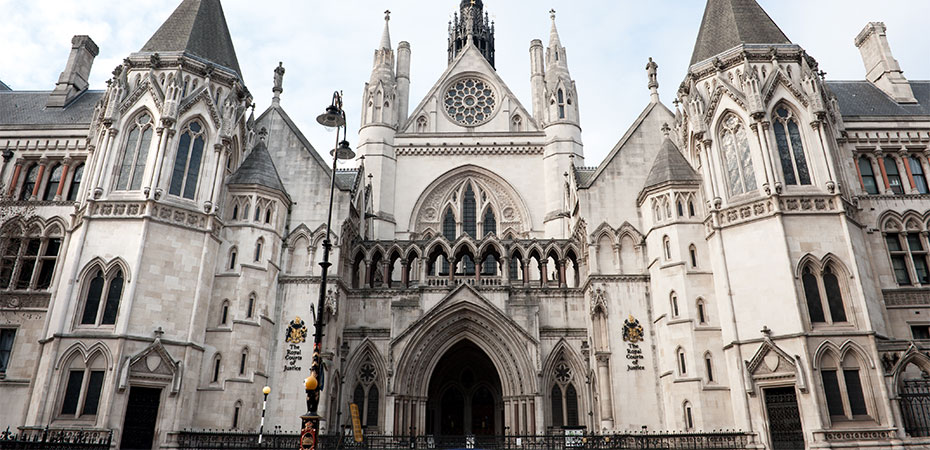The Court of Appeal recently heard applications by two car finance companies who sought copies of court documents from a claim to which they were not a party, for use in similar proceedings against them. The decision illustrates the court’s approach to non-party access to court documents, and is interesting against the backdrop of a recent consultation on the same topic.
Background to the applications
The Court of Appeal was due to hear three separate but similar appeals. Each appeal concerned claims relating to commissions being paid by car finance companies to the car dealers who arrange finance on behalf of their customers. The claims raised allegations including secret commissions, breach of fiduciary duties and unfair relationships under the Consumer Credit Act. Many similar claims are being brought in county courts around the country, and these three appeals had been listed together and expedited in order to provide definitive rulings which may be applicable in other similar claims.
Two finance companies, which were not party to these appeals, sought access to certain documents from the court file. The stated purpose of seeking the documents was to decide whether they should stay their own similar claims pending the outcome of these appeals.
The documents sought were the appellants’ notices and grounds of appeal; the respondents’ notices and grounds of opposition; and the parties’ skeleton arguments – all documents which would have set out the basis of the appeals and any opposition to them. The documents were sought before the hearing of the appeals and so they had not yet been read or referred to in open court.
What court documents can a non-party access?
The general rule under CPR 5.4(C) is that a non-party may obtain from the court records:
As of right, without permission:
- a copy of a statement of case (but not documents filed with or attached to it);
- a judgment or order given or made in public; and
With permission from the court:
- any other document filed by a party, or communication between the court and another party or person.
The particular documents requested by the finance companies required court permission and so, pursuant to the Supreme Court’s decision in Cape v Dring [2019] UKSC 38, the applicant was required to show why they wanted the documents, and how providing them with access would advance the principle of open justice.
Why did the applicants want access?
The Court of Appeal was satisfied that the applicants had demonstrated why they wanted access – in order to consider whether to stay their own similar claims pending the outcome of the appeals. There was no objection to this reason.
Would access advance open justice?
The Court also held that the applicants had a legitimate interest in the documents sought, so that they would have the fullest information available, given that stays were under consideration in their own claims on similar issues. The principle of open justice would therefore be advanced by providing access to the requested documents – taking into account that the skeleton arguments had not been aired in open court.
Restrictions on use
It is worth noting that, while the finance companies were required to give their reasons and justifications for seeking access to these documents, none of the parties in these applications objected to copies of the documents being provided, and so the court was more concerned with the form of order and any restrictions to be placed on the use of the documents.
Notwithstanding that access was granted, the court did place certain restrictions on the documents. First, it ordered that certain personal data (home addresses of claimants) be redacted from the copies provided. It also held the court had the power to place restrictions on the use of the documents provided under CPR 5.4(C) and so restricted their use to the purpose for which they had been requested – to assess case management in the other claims.
Consultation on access to court documents
In parallel with this decision, the Civil Procedure Rules Committee (CPRC) has recently consulted on proposed changes to CPR 5 (access to court documents) which would open up greater access to documents on the court record. In particular, the proposals would give non-parties wider access to skeleton arguments, witness statements and expert reports, and put the onus for providing copies of those documents on the parties, rather than the court. Those proposals have been met with some challenge from practitioners in the consultation – not least as to the logistics of how documents should be requested of and provided by a party – and in the recently published minutes of the CPRC meeting of 7 June 2024, the CPRC announced that work on the project was being temporarily paused until the autumn. While it remains to be seen what changes are ultimately made to CPR 5.4(C), it does appear that the courts are tending towards greater transparency in access to documents in civil litigation.
Case: Hopcraft and others v Close Brothers Ltd and others [2024] EWCA Civ 634
Transparency in Litigation
For more information on access to court documents, you may be interested in our Intellectual Property team’s three-part series on Transparency in Litigation – looking at the rules in the Unified Patent Court, the courts of England & Wales, and the French courts.
About the author(s)
Chris supports our dispute resolution lawyers in providing excellent client service by keeping them abreast of current awareness and legal developments in their practice areas. He also writes client insights and articles on topics of importance in the areas of litigation and arbitration.
Sean Adams is a commercial disputes partner, primarily based in Birmingham. He has a broad commercial practice, with significant experience in a variety of sectors (including within the automotive, aerospace, financial services and renewable energy sectors).


